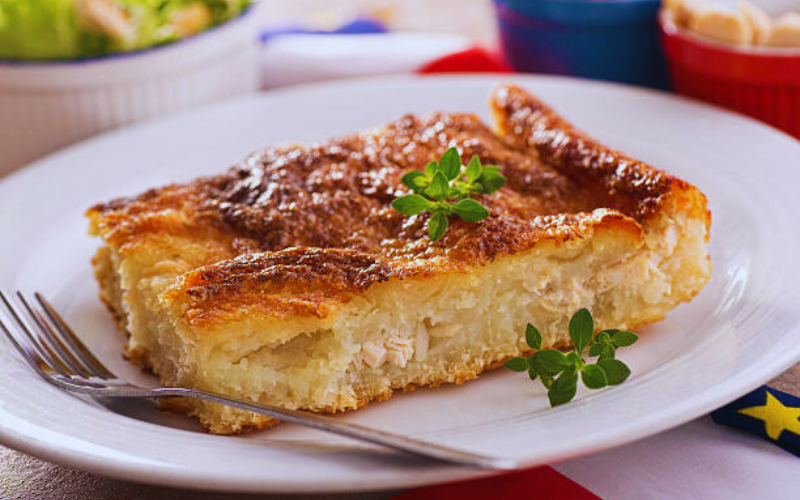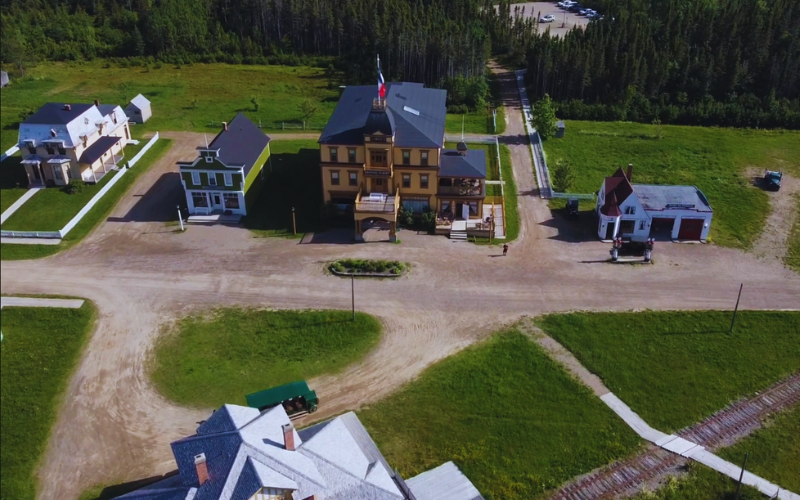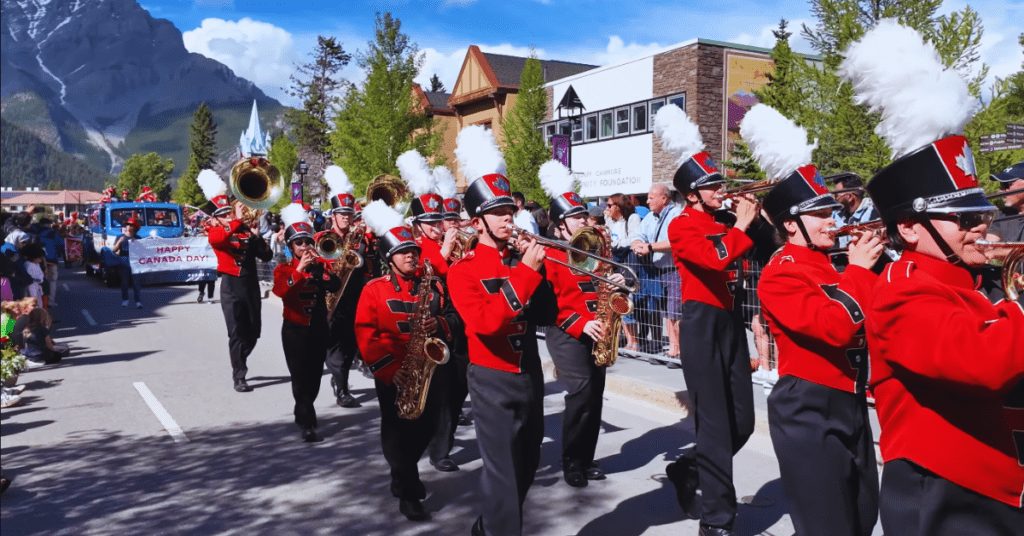Embracing Heritage: A Guide to Celebrating National Acadian Day
1. Understanding National Acadian Day

Historical significance of August 15th
August 15th holds a special place in Acadian hearts. It’s the day we come together to celebrate our rich history and vibrant culture. This date was chosen because it’s the Feast of the Assumption, an important religious holiday for many Acadians. But it’s more than just a religious observance – it’s a day that reminds us of our resilience and strength as a community.
I remember my grandmother telling me stories about how our ancestors overcame hardships and kept their traditions alive. It always gave me goosebumps to think about the challenges they faced and how they persevered.
The Acadian culture and its importance
Acadian culture is like a colorful tapestry, woven with threads of French, Indigenous, and maritime influences. It’s a culture that values family, community, and tradition. From our unique dialect of French to our toe-tapping music, there’s so much that makes Acadian culture special.
I’ve always loved how our culture emphasizes storytelling. Growing up, I’d sit for hours listening to my uncles spin yarns about life in Acadia. These stories weren’t just entertainment – they were a way of passing down our history and values.
Recognition of National Acadian Day across Canada
It’s heartwarming to see how National Acadian Day has gained recognition across Canada. In 2003, the Canadian government officially recognized August 15th as National Acadian Day. Now, celebrations take place not just in the Maritime provinces, but all across the country.
I once attended a National Acadian Day celebration in Toronto, and I was moved to tears seeing how our culture was being celebrated so far from our traditional homeland. It really showed me how our heritage has become a part of the broader Canadian tapestry.
2. Traditional Acadian Cuisine

Preparing classic Acadian dishes
Acadian cuisine is comfort food at its best. Some of my favorite dishes include:
- Rappie pie (râpure): A hearty casserole made with grated potatoes and meat.
- Poutine râpée: Not to be confused with Quebec’s poutine, this is a potato dumpling with a pork filling.
- Fricot: A savory stew that’s perfect for cold days.
I remember the first time I tried to make rappie pie on my own. It was a disaster! But with practice (and a lot of help from my mom), I finally got it right. There’s something special about making these traditional dishes – it’s like a connection to our ancestors.
Hosting an Acadian-themed potluck
Hosting an Acadian-themed potluck is a great way to share our culinary traditions with friends. Here are some tips:
- Ask guests to bring a traditional Acadian dish.
- Provide recipe cards for each dish, explaining its history and significance.
- Set the mood with some Acadian music in the background.
I hosted one of these potlucks last year, and it was a hit! Even my non-Acadian friends got into the spirit, trying their hand at making Acadian dishes. It was a fun way to share our culture and create new memories.
Exploring modern interpretations of Acadian recipes
While traditional recipes are wonderful, it’s also exciting to see how chefs are putting modern spins on Acadian cuisine. Some interesting twists I’ve seen include:
- Rappie pie spring rolls
- Poutine râpée sliders
- Fricot-inspired risotto
I’m always amazed at how these modern interpretations can make our traditional flavors accessible to a wider audience while still respecting the essence of Acadian cuisine.
3. Music and Dance Celebrations

Organizing Acadian music concerts
Acadian music is the heartbeat of our culture. From lively fiddle tunes to haunting ballads, our music tells the story of our people. Organizing an Acadian music concert can be a great way to celebrate National Acadian Day. Some ideas:
- Invite local Acadian musicians to perform.
- Include a mix of traditional and contemporary Acadian music.
- Consider hosting an outdoor concert for a festive atmosphere.
I once helped organize a small Acadian music concert in my community center. The energy in the room was electric – people of all ages were tapping their feet and singing along. It really brought our community together.
Learning traditional Acadian dances
Acadian dances are a fun way to get everyone involved in the celebrations. Some popular Acadian dances include:
- La quadrille
- Le set carré
- Le reel à quatre
Why not organize a dance workshop before your National Acadian Day celebrations? It’s a great way to get people moving and laughing together. I remember taking a dance workshop a few years ago – I was all left feet at first, but by the end of the night, I was twirling with the best of them!
Hosting a community dance event
A community dance event is a perfect way to cap off National Acadian Day celebrations. Here’s how you can make it a success:
- Find a spacious venue, preferably with a wooden floor for dancing.
- Hire a caller to guide people through the dances.
- Provide refreshments – dancing is thirsty work!
The last community dance I attended was a riot of color and laughter. Seeing everyone from kids to grandparents on the dance floor, celebrating our shared heritage, was truly heartwarming.
4. Cultural Education and Awareness

Attending local Acadian history lectures
Learning about Acadian history helps us understand where we come from and appreciate the journey of our ancestors. Many communities offer lectures or talks on Acadian history around National Acadian Day. These can cover topics like:
- The Great Expulsion
- Acadian settlement patterns
- Notable Acadian historical figures
I attended a lecture last year about Acadian women in history. It was eye-opening to learn about these strong, resilient women who played such a crucial role in preserving our culture.
Visiting Acadian museums and heritage sites
There are many wonderful museums and heritage sites that showcase Acadian history and culture. Some notable ones include:
- Village Historique Acadien in New Brunswick
- Grand-Pré National Historic Site in Nova Scotia
- Acadian Museum of Prince Edward Island
Visiting these sites can be a powerful experience. I still remember the first time I visited Grand-Pré. Standing on the same land where our ancestors lived and were expelled from was deeply moving.
Organizing Acadian language workshops
Language is a crucial part of Acadian culture. Organizing Acadian French language workshops can help preserve and promote our unique dialect. These workshops could include:
- Basic Acadian French phrases
- Acadian French storytelling sessions
- Discussions about the evolution of Acadian French
I’ve participated in a few of these workshops, and they’re always fun. It’s fascinating to see how our language has evolved and how it differs from standard French.
5. Community Parades and Festivals

Planning a community parade
A parade is a fantastic way to bring the community together and showcase Acadian pride. Here are some elements to consider for your parade:
- Floats representing different aspects of Acadian culture
- Marching bands playing Acadian music
- People dressed in traditional Acadian costume
I helped organize a small parade in my hometown a few years ago. It was so much fun seeing everyone come together to celebrate our heritage.
Setting up Acadian craft fairs
Craft fairs are a great way to showcase Acadian artisanal skills. You could include:
- Traditional Acadian quilts
- Hand-made musical instruments
- Acadian-themed artwork
I bought a beautiful hand-woven basket at an Acadian craft fair last year. It’s not just a useful item – it’s a piece of our cultural heritage that I get to use every day.
Organizing outdoor festivals with Acadian themes
Outdoor festivals can be the highlight of National Acadian Day celebrations. Some ideas for festival activities:
- Acadian food stalls
- Live Acadian music performances
- Traditional games and activities for children
The atmosphere at these festivals is always so joyful. I love seeing families come together, enjoying our food, music, and traditions under the summer sun.
Summary
National Acadian Day is more than just a celebration – it’s a vibrant expression of our identity, history, and culture. From savoring traditional foods to dancing to Acadian tunes, from learning about our history to making joyful noise in the Tintamarre, there are so many ways to embrace our heritage on this special day.
As we celebrate, let’s remember the resilience of our ancestors and the richness of the culture they’ve passed down to us. National Acadian Day is a time to honor our past, celebrate our present, and look forward to a future where Acadian culture continues to thrive and evolve.
So this August 15th, whether you’re Acadian by birth or Acadian at heart, join in the celebrations. Share a meal, learn a dance, wave a flag, or simply make some noise. However you choose to participate, you’ll be part of a proud tradition that spans centuries and connects us all.
Frequently Asked Questions
What is the significance of National Acadian Day?
National Acadian Day, celebrated on August 15th, commemorates the resilience and cultural heritage of the Acadian people. It’s a day to celebrate Acadian history, language, customs, and achievements, and to promote awareness of Acadian culture within Canada and beyond.
How can non-Acadians participate in the celebrations?
Non-Acadians are always welcome to join in National Acadian Day celebrations! You can participate by attending local events, trying Acadian cuisine, learning about Acadian history and culture, or even just wishing your Acadian friends a happy National Acadian Day.
Where are the main National Acadian Day celebrations held?
While celebrations take place across Canada, the largest events are typically held in the Maritime provinces, particularly in New Brunswick, Nova Scotia, and Prince Edward Island, where there are significant Acadian populations.
What are some key Acadian symbols and their meanings?
Key Acadian symbols include:
- The Acadian flag: A French tricolor with a golden star, representing the Virgin Mary and the Acadians’ devotion to her.
- The Acadian anthem: “Ave Maris Stella,” which speaks of Acadian identity and resilience.
- The tintamarre: A noisy parade symbolizing the Acadians’ refusal to be silenced.
How has the celebration of National Acadian Day evolved over time?
National Acadian Day has grown from a primarily religious observance to a broader cultural celebration. It’s gained official recognition, with larger, more diverse events being organized each year. There’s also been an increased focus on educating younger generations about Acadian heritage and promoting Acadian culture to a wider audience.



